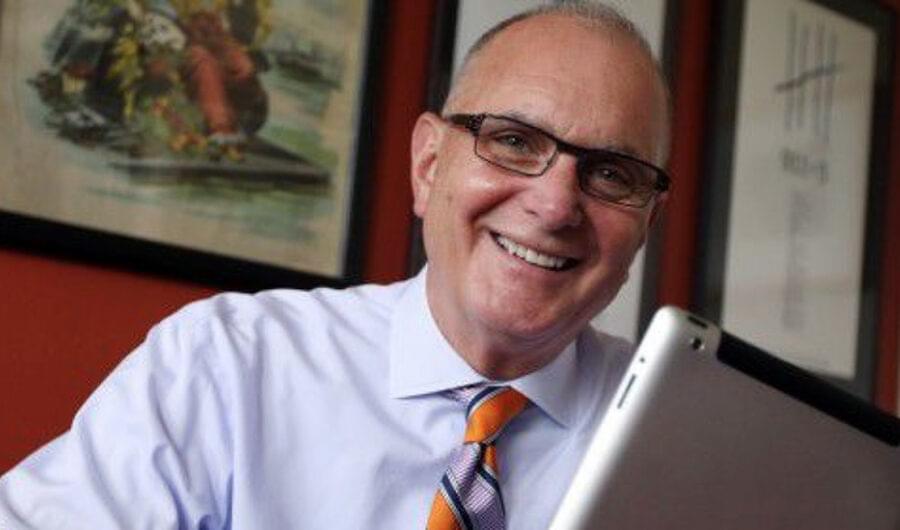
Denis
Thursday, March 12, 2015
Four-minute read
I got a text message a few hours ago from a longtime friend.
“Denis just turned in his resignation”
It wasn’t a surprise. It was still a gut punch.
The text referred to Denis Finley, editor of The Virginian-Pilot, a man I worked for most of my professional career, a man I admire, faults and all.
I first met him in 1999, when he was design team leader. He’d just been named DME for presentation, and I was to interview with him for a spot on The Pilot’s design team. He was tall, nicely dressed, and – my gearhead self quickly noticed – was driving a Taurus SHO, one of the best cars of the 1990s.
He told me over dinner that night he was going to hire me. I was overjoyed. I ended up staying 14 years, resigning on the same date I started.
The Pilot was the only place I wanted to work. In that era, a handful of papers were on the forefront of design, and The Pilot was the leader.
Denis helped put it there and for nearly two decades kept it there.
He was a rare newspaper leader. Before getting into news, he worked as a pastry chef. He switched to journalism and was hired at The Pilot as a photographer. He once said that when he was looking at options on where to work, the only place he wanted to go was The Pilot.
He rose up the ranks, was features editor, design team leader, DME of presentation, managing editor and finally editor.
He was an immaculate dresser, with tailored suits and colorful ties. He was fastidiously neat, his pens lined up and his business cards in a perfect stack on a tray. He kept a bottle of Windex in his office credenza to clean fingerprints off his table after every meeting.
But the well-groomed exterior didn’t always match the man. With his Philly accent and straight-talking demeanor, he lacked the slick corporate polish of other company officials.
When he had to recite company talking points, you could tell he didn’t really mean it.
But he tended toward an open, positive newsroom – a “no assholes policy.” I recall when he got the ME job, he moved into an office previously occupied by a deputy managing editor, a disapproving, unapproachable woman whose face was twisted into a permanent scowl.
A person whose desk was outside the office – noting the light now streaming through the office windows – commented to me, “That’s the first time that I’ve seen those blinds open in years.” That was Denis. He didn’t cage himself in an office with hermetically sealed window dressings. Every night before he went home – usually pretty late – he would walk through the newsroom and say good night to people.
One night, after putting an especially large commemorative issue together, the night crew – copy editors, designers, photos editors – and Denis sat at our desks and passed around a bottle of Knob Creek.
Denis always urged me to do my best work. I felt like phoning it in wasn’t an option. He made sure designers were included in the process from the outset and were real journalists, not just windowdressers.
“Communicate, don’t decorate,” was the philosophy. Denis, the former chef, used to say “Presentation, in food and in news, is important.”
And he did some ballsy shit. I had the chance to work on this gutwrenching series about a Navy hospital in Afghanistan. The stories and photography featured in it are not for the faint-hearted. It was a Pulitzer finalist.
But Denis had the misfortune of reaching his goal just in time to oversee the decline of the paper he loved. He leaves with a newsroom half the size as when he started, and he had to make the cuts and deliver the news to people.
And the coverage is diminished, too. A new publisher didn’t back the newsroom when it really counted.
Denis lived and breathed The Pilot like no one else. But it was taking its toll. The last time I saw him he looked tired, as if the job stopped being fun a long time ago.
No one wants to leave a place worse off then when they found it, but it seems as if Denis is. Though not by his own hand. He tried to stem the tide, keep the paper strong. But the whole news industry is in irreversible decline.
It’s sad, but just the way things worked out for him.